У Чорноморському національному університеті імені Петра Могили завершилася чергова навчальна сесія в рамках проєкту ЄС Еразмус+ 101082696 – PROMENT «Сприяння професійній освіті та активній участі студентів через становлення комплексної системи менторства та тьюторства у ЗВО».
Захід організували за підтримки Модулю Жана Моне «Антикорупційні європейські стандарти як запорука формування громадянського суспільства», щоб обговорити актуальні питання запобігання корупції та роль європейських стандартів у цьому процесі.
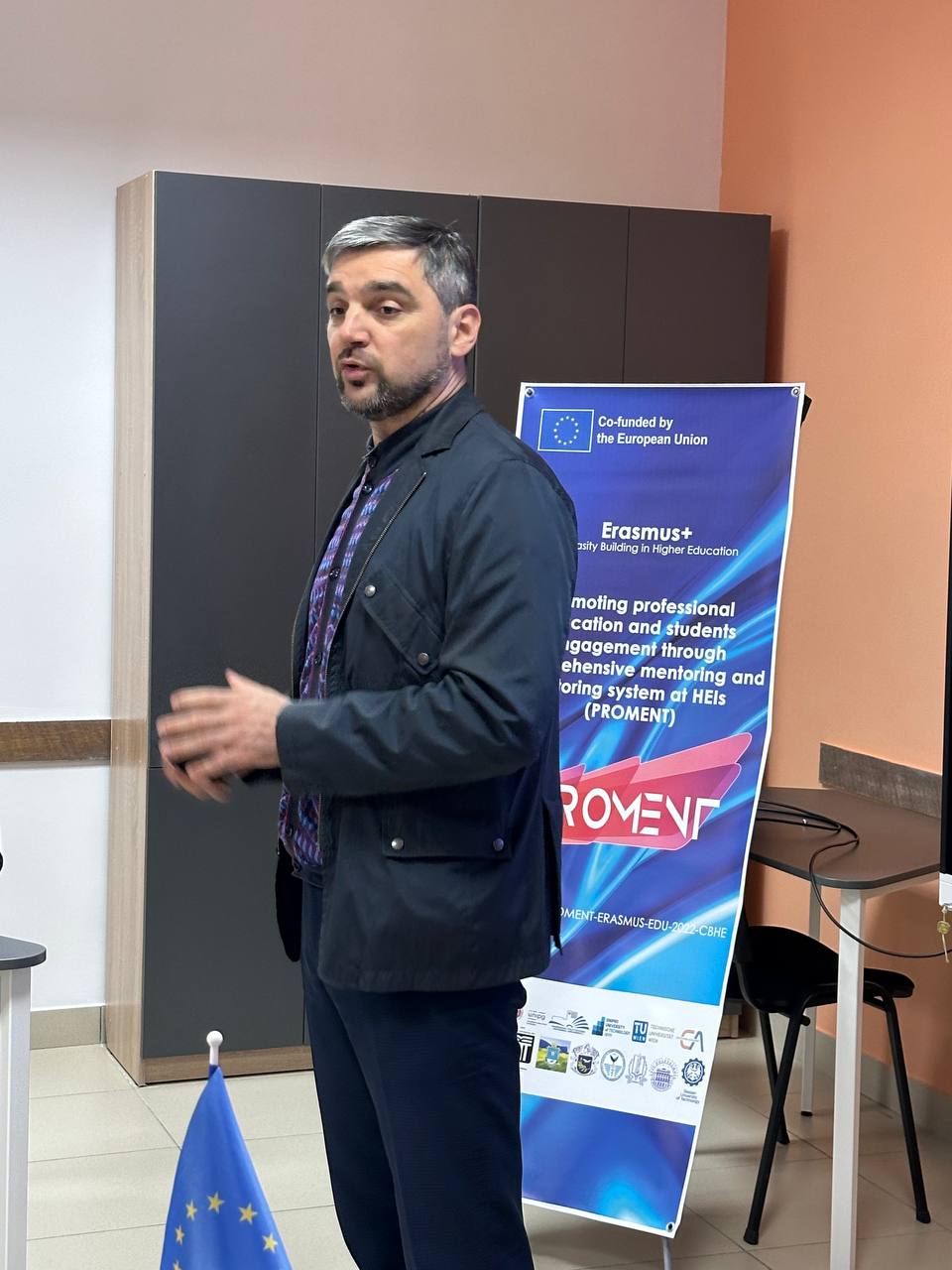
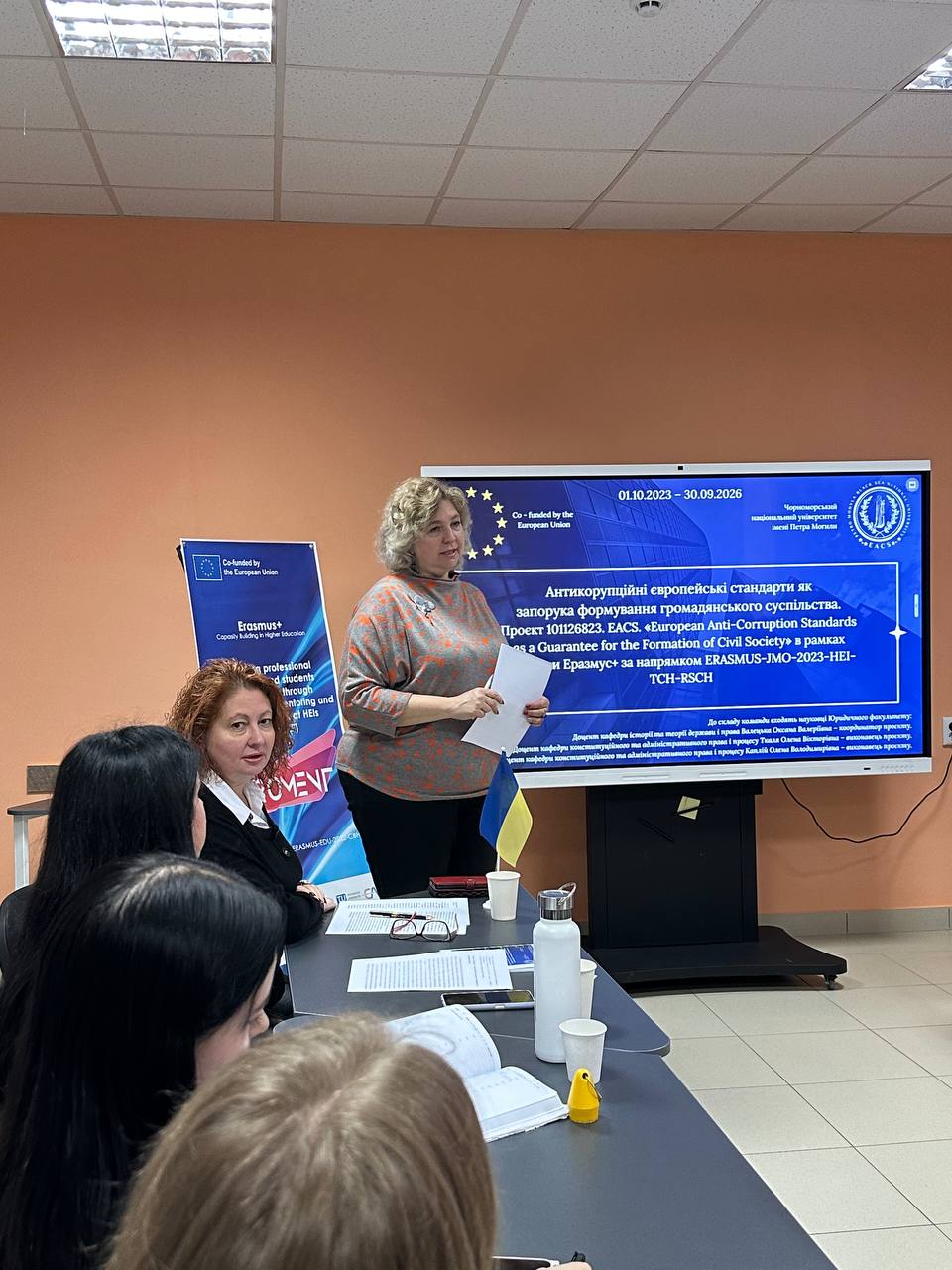
Серед спікерів заходу виступили представники Модулю Жана Моне. Виконавиця проєкту Оксана Валецька розповіла про важливість впровадження антикорупційних європейських стандартів для побудови сильного громадянського суспільства.
Вона підкреслила основні завдання проєкту та очікувані результати, які сприятимуть формуванню нових принципів прозорості та відповідальності.
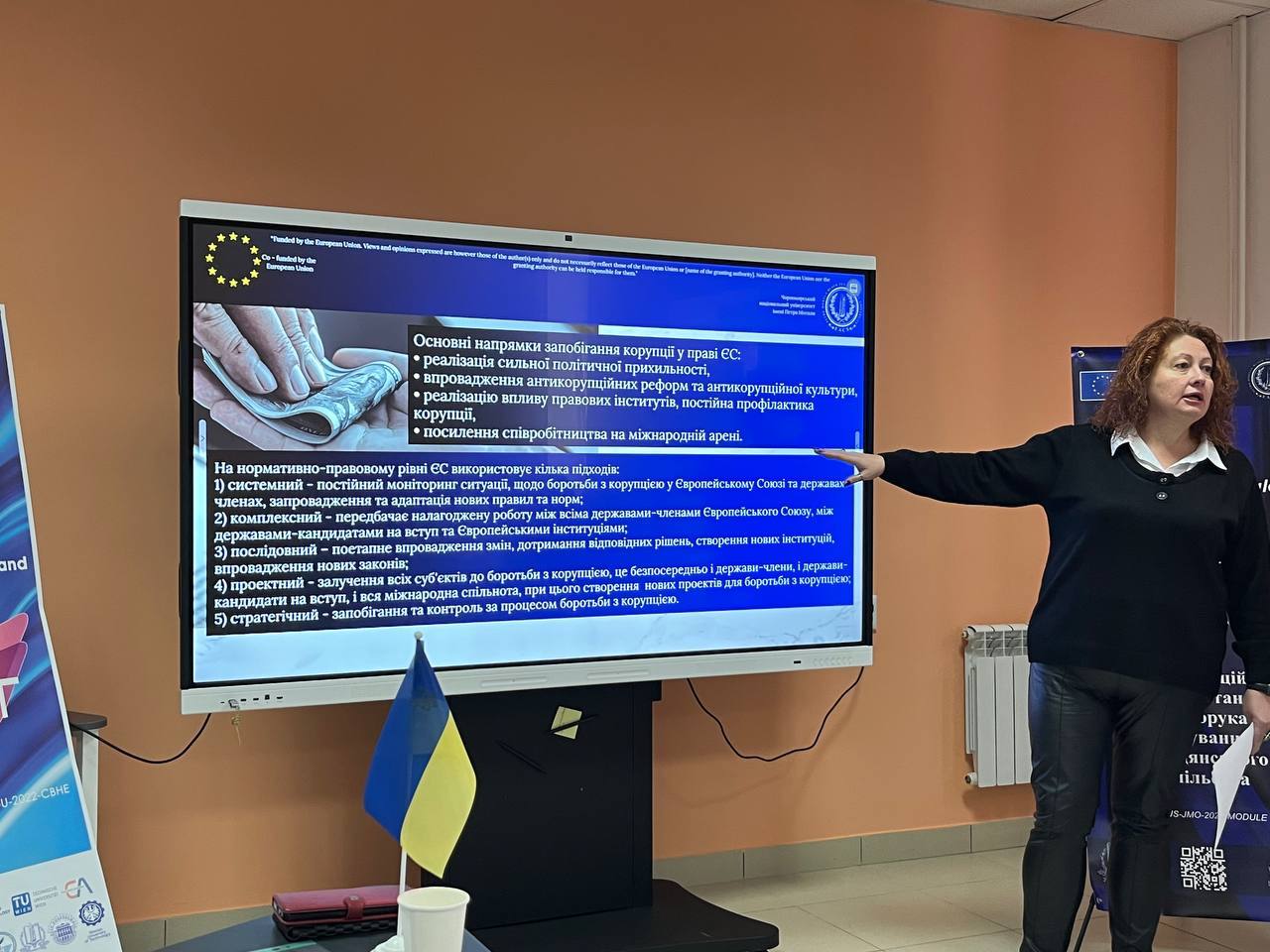
Виконавиця проєкту Олена Ткаля поділилася знаннями про політику Європейського Союзу щодо запобігання корупції, висвітливши основні інструменти та механізми, що застосовуються для боротьби з корупційними проявами в Європі. Її виступ дозволив студентам глибше зрозуміти принципи антикорупційної політики ЄС та її актуальність для України.
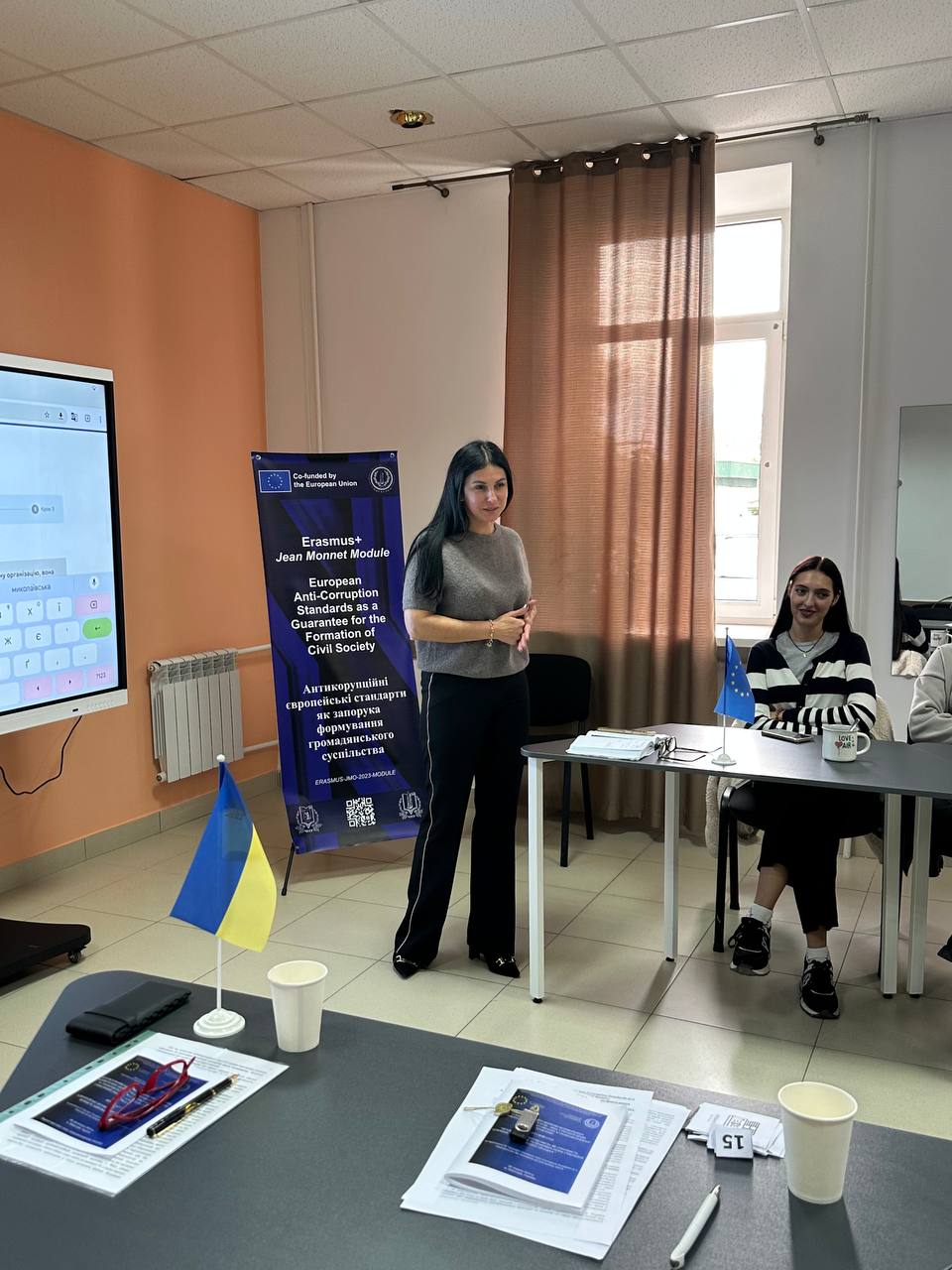
Олена Каплій доповнила формат зустрічі, розповівши про чинний стан корупції в Україні та ознайомила студентів з роботою Національного агентства з питань запобігання корупції.
Вона підкреслила важливість співпраці з європейськими партнерами для впровадження міжнародних стандартів прозорості та ефективної боротьби з корупцією на всіх рівнях.
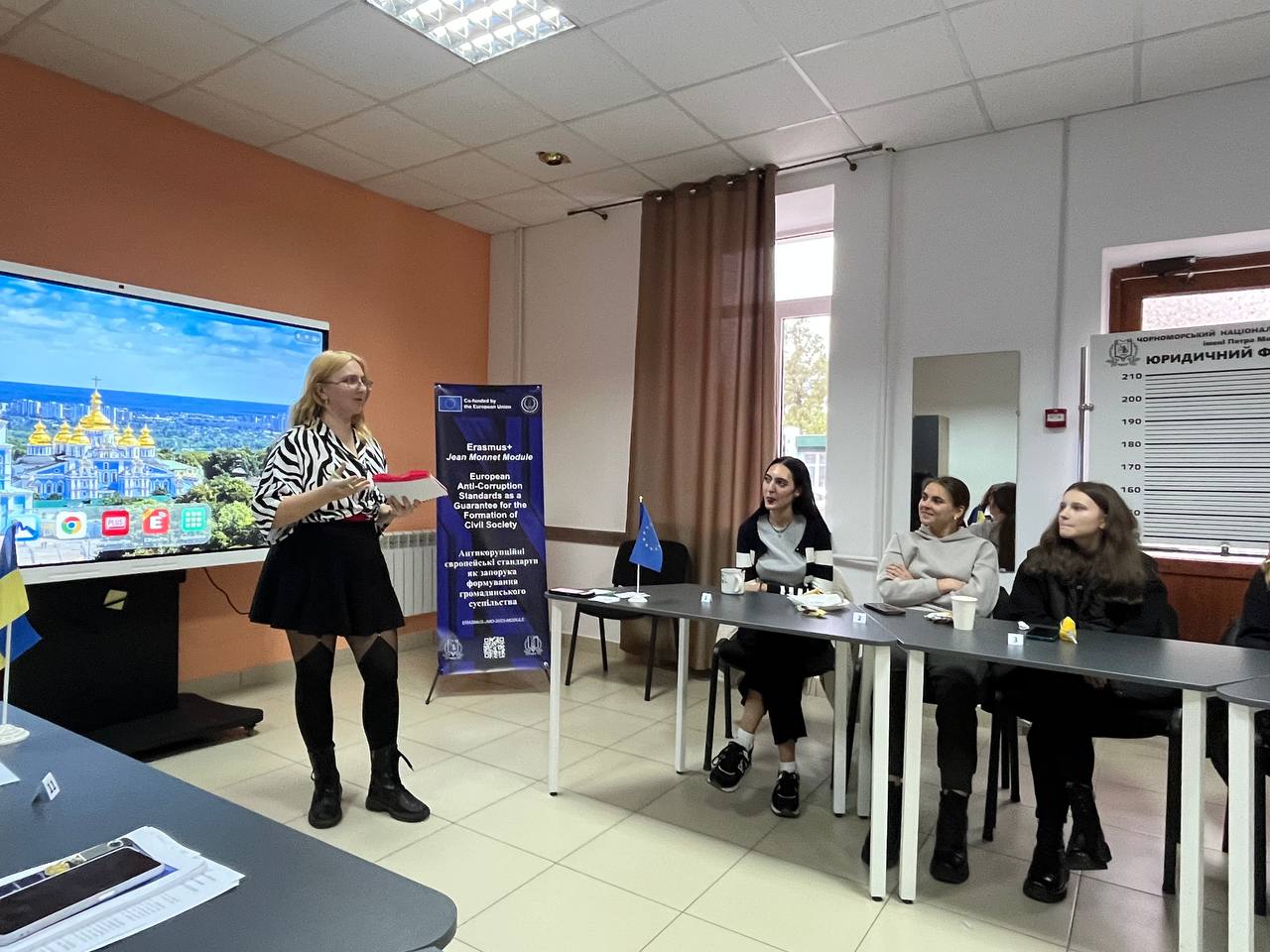
Наприкінці заходу тьютори взяли участь у грі «Антикорупційна мафія», яку організувала студентка, що успішно завершила даний факультатив. Гра допомогла учасникам у неформальному форматі закріпити знання з теми антикорупційних ініціатив та зрозуміти, як виявляти та протидіяти корупційним ризикам у різних сферах діяльності.
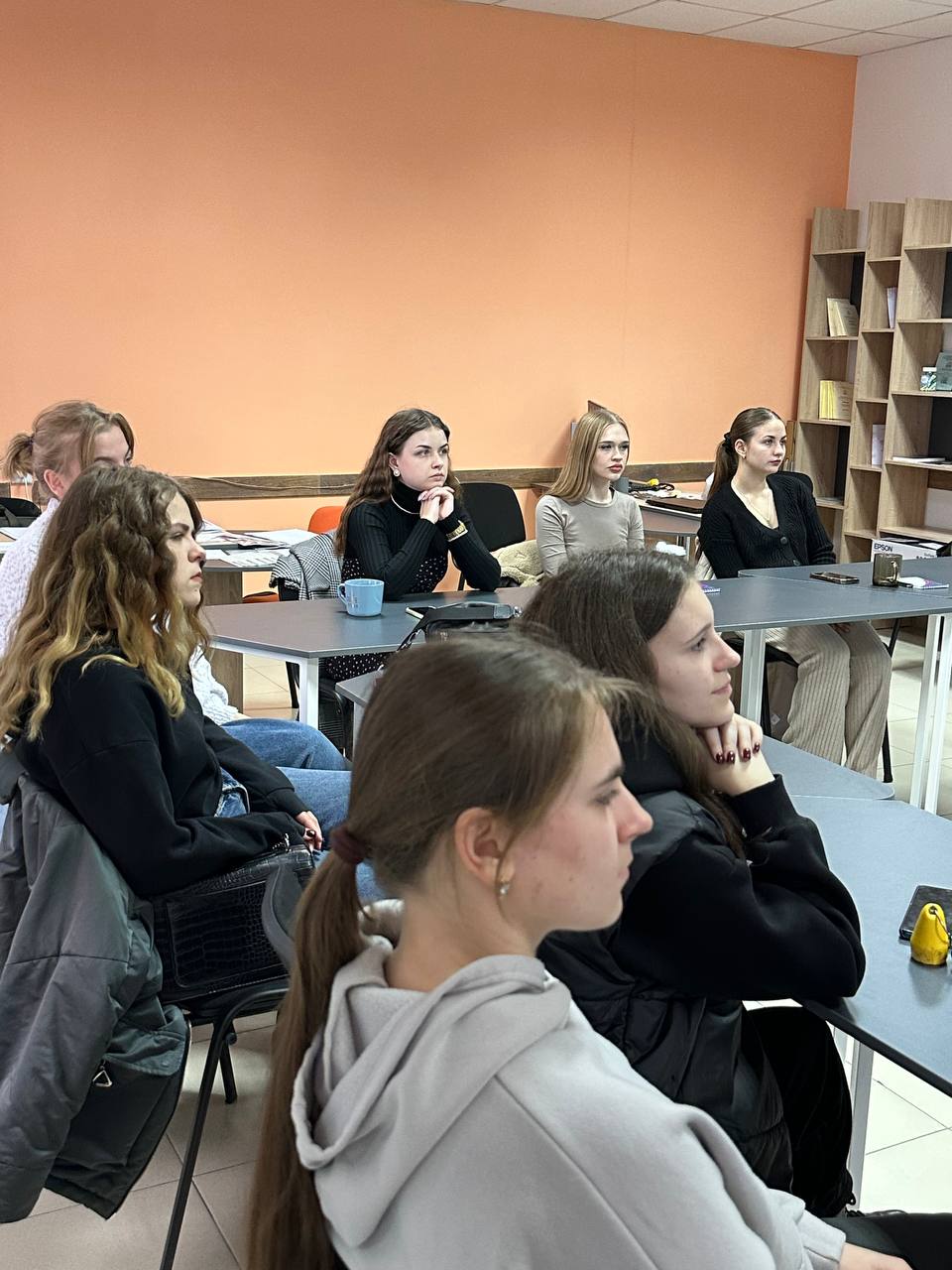
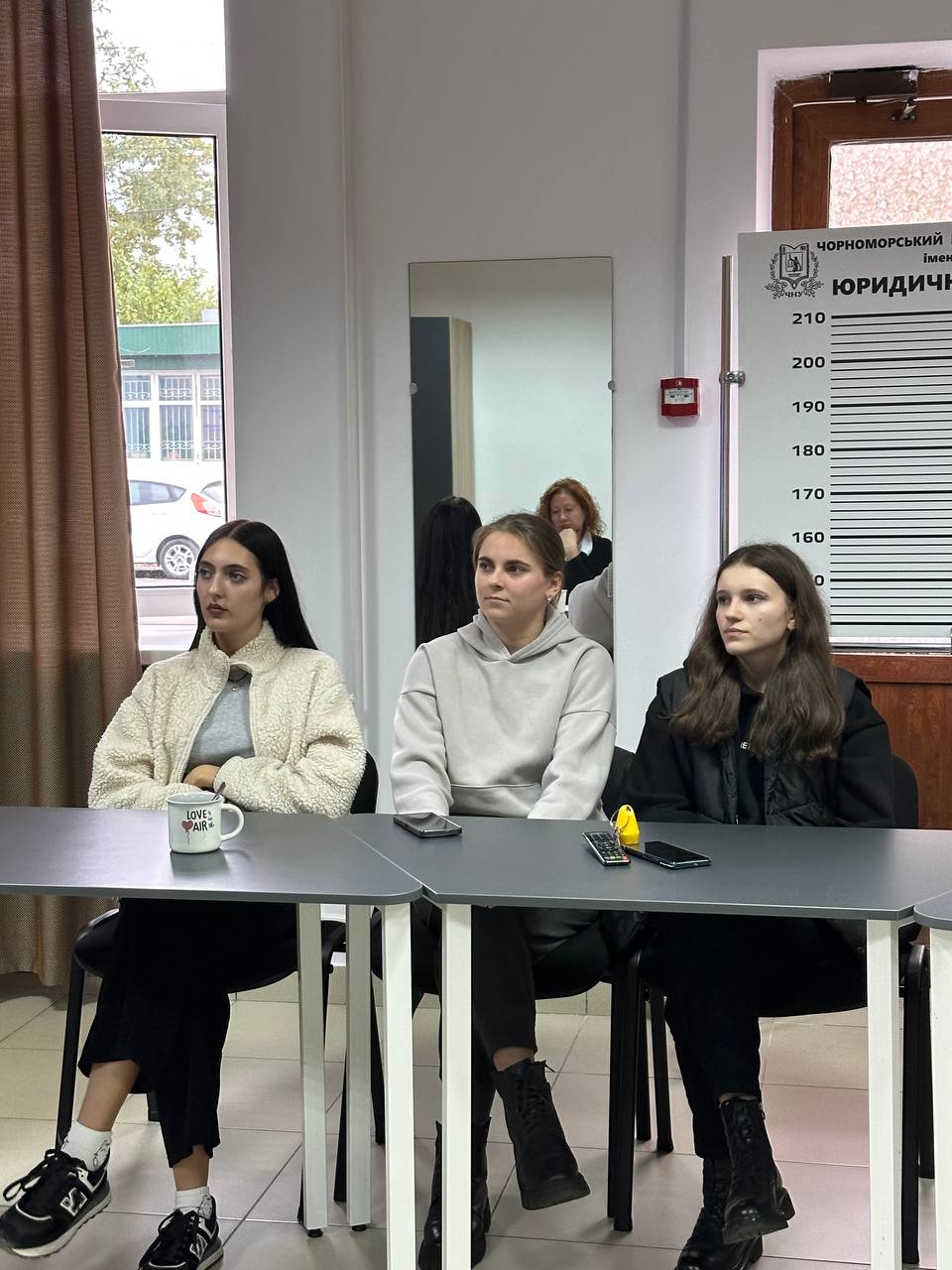
Ця сесія стала черговим кроком на шляху до впровадження європейських антикорупційних стандартів у нашій країні та формування активного громадянського суспільства!
On 31 October, there was an event held as an interesting experience of mutual dissemination of EU Erasmus+ projects. The Petro Mohyla Black Sea National University has completed a regular training session within the framework of the EU Erasmus+ project 101082696 – PROMENT ‘Promoting Vocational Education and Active Participation of Students through the Establishment of a Comprehensive Mentoring and Tutoring System in Higher Education Institutions’. The event was organised with the support of the Jean Monnet Module ‘ANTI-CORRUPTION EUROPEAN STANDARDS AS A BASIS FOR THE FORMATION OF CIVIL SOCIETY’ to discuss topical issues of corruption prevention and the role of European standards in this process.
Among the speakers at the event were representatives of the Jean Monnet Module. Oksana Valetska spoke about the importance of implementing European anti-corruption standards for building a strong civil society. She highlighted the main objectives of the project and the expected results, which will contribute to the formation of new principles of transparency and accountability.
Olena Tkalya shared her knowledge of the European Union’s anti-corruption policy, highlighting the main tools and mechanisms used to combat corruption in Europe. Her presentation allowed students to gain a deeper understanding of the principles of EU anti-corruption policy and its relevance for Ukraine.
Olena Kapliy complemented the meeting by speaking about the current state of corruption in Ukraine and introduced the students to the work of the National Agency for the Prevention of Corruption. She emphasised the importance of cooperation with European partners to implement international standards of transparency and effective struggle against corruption at all levels.
At the end of the event, the tutors took part in the Anti-Corruption Mafia game organised by a student who had successfully completed this elective course. The game helped the participants to consolidate their knowledge of anti-corruption initiatives in an informal format and to understand how to identify and counteract corruption risks in various fields of activity.
This session was another step towards the implementation of European anti-corruption standards in our country and the formation of an active civil society!